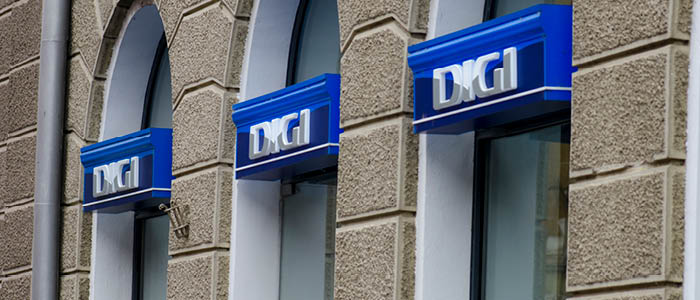On August 1, 2024, Filip & Company and CMS announced that Banca Transilvania's purchase of OTP Bank Romania (as reported by CEE Legal Matters on February 21, 2024) has now closed.
Dentons and Filip & Company Advise on EBRD's Investment in Arobs Transylvania Software
Dentons has advised the EBRD on an equity investment in Arobs Transylvania Software. Filip & Company advised Arobs.
Dentons Advises Convergint Technologies on Acquisition of Helinick
Dentons has advised Convergint Technologies on its acquisition of Helinick from Marius Retegan and other minority shareholders. Deloitte Legal's affiliate law firm Reff & Associates reportedly advised the sellers.
RTPR Advises Aramco on Investment in Horse Powertrain
RTPR, working with A&O Shearman, has advised Aramco on its investment in Horse Powertrain via a 10% equity interest acquisition, alongside Renault Group, Zhejiang Geely Holding Group, and Geely Automobile Holdings Limited.
Important Changes to the Legislation on Waste Electrical and Electronic Equipment
On 17 May 2024, Law No. 127/2024 for the approval of Government Emergency Ordinance No. 5/2015 on Waste Electrical and Electronic Equipment (Law No. 127/2024) entered into force, after a laborious journey marked by extensive debates and negotiations, thus finalizing a legislative process that began in 2015.
Romanian Competition Council Conducts Investigations of Alleged Abuse of Superior Bargaining Position and Alleged Unfair Trading Practices. What Does This Mean for Companies?
On 26 June 2024, the Romanian Competition Council (the "RCC") announced that it had conducted a dawn raid as part of an investigation concerning the possible abuse of a superior bargaining position by a company active in the supply of liquid medicinal oxygen against a public hospital. The investigation has been launched ex officio as a result of information received from public sources. The case is noteworthy as it marks the first time the RCC has launched a review regarding an alleged abuse of superior bargaining position, a relatively new type of infringement under Romanian competition rules.
Biris Goran, Kinstellar, and PeliPartners Advise on Global Vision and Globalworth’s Sale of Logistics Portfolio to WDP
Biris Goran and Kinstellar have advised Global Vision and Globalworth, respectively, on the sale of a logistics portfolio to WDP. PeliPartners advised WDP.
Clifford Chance Advises Nala Renewables Limited on Acquisition of PV Park from Monsson Group
Clifford Chance has advised Nala Renewables Limited on its acquisition of a ready-to-build photovoltaic park from Monsson Group in Caras Severin.
Dissecting CEE Disputes
ACI Partners Managing Partner Igor Odobescu, Nagy es Trocsanyi Founding Partner Peter Nagy, Kinstellar Partner Radovan Grbovic, Law Office Vujacic Partner Sasa Vujacic, and Tuca Zbarcea & Asociatii Partner Robert Rosu discuss recent litigation trends across CEE, driven by the impact of economic shifts and regulatory changes in their jurisdictions.
Bogdan Ilea Joins Popescu & Asociatii as Head Regulatory, Government & Public Affairs
Bogdan Ilea has joined Popescu & Asociatii as Partner and the firm's new Head of Regulatory, Government & Public Affairs practice.
Filip & Company Advises Arobs on Capital Increase
Filip & Company has advised Arobs Transilvania Software on the share capital increase operation through which it has raised EUR 28.7 million.
Filip & Company Advises Digi Group Spain on Contracts with Telefonica Moviles Espana
Filip & Company has advised Digi Group’s Spanish subsidiaries on a national roaming contract and a network and spectrum sharing contract with Telefonica Moviles Espana.
Romania Strengthens Screening of EU Investments
Further to the December 2023 amendments to the Romanian regime for screening inbound direct investments (that we previously covered here), which formally included EU investors within the scope of screening, the Romanian Parliament has adopted a new law (the “New Law”) to further strengthen the approach towards EU investors.
RPTR and Wolf Theiss Advise on Vectr Holdings' Acquisition of The Landmark Office Building
RTPR has advised Vectr Holdings on the indirect acquisition of the company that owns The Landmark office building in Bucharest from funds managed by Revetas Capital and affiliates of Cerberus Capital Management. Wolf Theiss advised Revetas Capital and Cerberus.
Preparing for the Future: Romania’s National AI Strategy and the EU AI Act
Last week was full of exciting news in relation to AI in Romania. First, the long-awaited AI Act was published in the EU’s Official Journal on 12 July, becoming Regulation (EU) 2024/1689. The AI Act is an essential part of the EU’s extensive digital strategy, alongside the Digital Services Act and the Digital Markets Act. The EU digital strategy aims to establish a thorough regulatory framework that tackles the diverse challenges and opportunities of the digital economy. Secondly, the Romanian Government approved the National Strategy regarding Artificial Intelligence (“AI Strategy”) on 11 July. The AI Strategy aims to contribute to Romania’s adoption of digital technologies in the economy and society, while respecting human rights and promoting excellence and trust in AI.
Andra Soare-Filatov Becomes Partner at LDDP
Leaua Damcali Deaconu Paunescu has promoted former Managing Associate Andra Soare-Filatov to Partner.
DLA Piper and RTPR Advise on Believe's Partnership with Global Records
DLA Piper has advised Believe on a partnership with Global Records. RTPR advised Global Records.
Energy Efficiency and Climate Neutrality in Europe’s Real Estate Sector
On 12 April 2024, the Council of the European Union adopted the revised text of Directive 2010/31/EU on the energy performance of buildings (the “Revised Directive”). The Revised Directive was published in the Official Journal of the European Union on 8 May 2024 and Member States will have to transpose it into national legislation within 2 years of its entry into force (i.e. 28 May 2024).




















